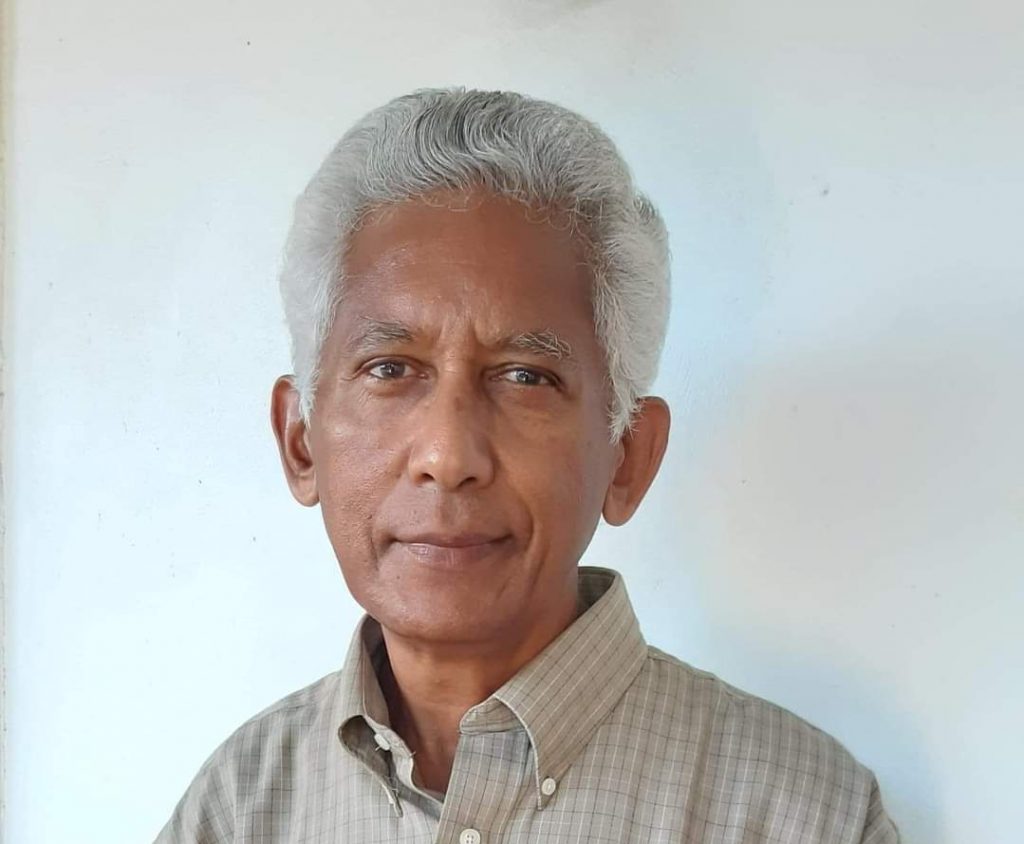Dear Editor,
Not debated or argued as a religion, Hinduism certainly is translated, interpreted and portrayed as a “Way of Life,” when discussed in conversation or taught as historical relics. As a supportive guardian of civilization, man’s purpose, goal and object, are all rooted in the various philosophies, content and context which accommodate no discrimination or prejudice but executed in an exercise of frankness, boldness and fairness, in pursuance of the ultimate truth and infinite eternity.
The deep seeded customs, safe guarded traditions and meaningful practices, are all revered in explainable scriptural complexities, mother nature’s sublimities and spiritual realization. This conventional mode awakens a joyful consciousness which associates itself with formalities and procedures, enveloping fashionable ceremonies, rites and rituals. Its ancient pride is coordinated with modern privileges, richly enshrined in cultural festivals, events, activities, celebrations and occasions to maintain its proud sustenance.
The geopolitical and socioeconomic perseverance of the way of life of an era, a location, a nation and people, are still preserved in the presence of a prevailing prestige, particularly pertinent to the relevance of an Asian population and its proficiencies.
Attuned to a holistic approach, the many rules and regulations accompanying laws and orders, are today flexed to reflect an international flair and also a domestic flame, to fan a local adaptation for convenience, but not correction. The departure from a motherland to the arrival in a homeland with different taste buds and challenging conditions, presents the argument and suggestion for changes and modifications without losing the essence of originality.
One of the many much anticipated and joyful events which has been preserved and bears much significance for family upkeep and re-unification, is the happy observance of Raksha Bandhan, bringing much joy and comfort as families get together. In India and the world at large including Guyana and the Caribbean, the occasion of Raksha Bandhan is being celebrated on Purnima (Full Moon), of the Shravan Month in the Hindu calendar, which falls in August. Hindus and non-Hindus, participated on the 19th to rejoice this festivity.
On this day, sisters would visit their brothers to tie the Rakhi, a sacred thread, around the wrist of the brother, re-enforcing, cementing and reminding the siblings of an eternal love, bonding and binding them eternally with felicitation and good wishes, respect and regard to honor each other. The brother reciprocates by expressing his promise to always protect his sister and awarding her with a gift. The sister places a tilak (sandalwood paste) on the forehead of her brother to keep away any negativity and also, she would perform Arti (an earthen lamp lit) in adoration and to dispel all darkness. Sweets are shared.
This simple ritual embellishes the deep bondage between sisters and brothers and augments the security for protection, knowing that there will always be someone to lean on their shoulder in times of difficulty and to look out for their happiness and interest, morally, spiritually, psychologically, emotionally and financially. A vow is taken in thoughts, words and actions.
The moral of Raksha Bandhan permeates from the story of Shri Krishna and Draupadi, after she was caught between the embroilment of the Pandavas and Kauravas. Krishna had hurt his finger and Draupadi unhesitatingly tore a piece of her sari to wrap his finger as a bandage, thereby establishing an infinite bondage. In a moment of her despair, as an attempt was made to disrobe her, Krishna protected Draupadi’s honor and dignity and prevented any embarrassment.
In the Vishnu Puran, another story unfolds when Lakshmi Mata had also tied a Rakhi on King Bali, making him her brother and securing a promise as a gift.
A deeper philosophical look at this occasion through the spiritual eye, expounds the tilak as a reminder that we are tied in bondage with our Atma (Soul) and the Supreme. With a promise to remain pure and perfect, we can work towards receiving sweet attainments and virtues in this life.
Historically, the essence of Raksha Bandhan was promulgated in the 16th century to leave a lasting legacy. Queen of Rajasthan, Rani Karnavati, ruler of Chittorgarh, was under attack and could not defend herself. She sent a Rakhi to Humayun, emperor of Delhi, asking him for his help to defend her and her kingdom. He recognized the Rakhi and its significance, respected her wish and responded to her call.
The lesson learnt could be developed to deliver peace around the world. It demonstrates the strong relationship which penetrates political boundaries and may remove economic barriers. The cultural significance of Raksha Bandhan is very meaningful in today’s society and pertinent towards removing discrimination and knitting a bondage of friendship with a simple piece of thread. Anyone can tie a Rakhi.
Happy Raksha Bandhan to all.
Yours respectfully,
Jai Lall.
